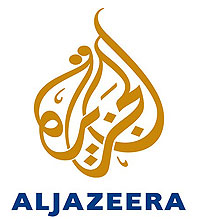One of Africa’s biggest media houses, the Nairobi based Nation Media Group (NMG) was recently commended by President Paul Kagame for letting Africans to cover the Africa story. “I wish to commend Nation Media Group on the ambitious plan of having Africans telling their own story.


One of Africa’s biggest media houses, the Nairobi based Nation Media Group (NMG) was recently commended by President Paul Kagame for letting Africans to cover the Africa story. "I wish to commend Nation Media Group on the ambitious plan of having Africans telling their own story. It is long over due,” the president was quoted by Uganda’s Daily Monitor which is owned by the media conglomerate.
We ought to critically look at what exactly the president was saying before heaping praises on NMG. What we have to note here is that the president was only commending them for their ambitions and not necessarily their actions. In other words Africans are yet to do a good job at telling their own stories.
President Kagame is one leader who has been steadfast in advocating for African solutions to African solutions as the way forward for the continent. For years, we (Africans) have cried foul over the way the Western media packages news about this continent.
The challenge that African media practitioners have therefore, is not only of how to tell their stories but more importantly, how to tell them in an ‘African’ way.
The big international media players like CNN, BBC, AP, Reuters and New York Times have been accused of always going for the ‘trademark’ African story on disease, poverty and political crisis.
Images of small malnourished children wading away flies from their eyes are captured by the sophisticated cameras that foreign correspondents move around with.
The good African stories hardly get space in the Western media unless of course they are positioned against the same negative templates.
A successful farmer is not just the one with huge crop yields, but the one with huge crop yields after a civil war, or one that was orphaned at an early age or recently lost a spouse to HIV/AIDS.
A successful woman is the one making crafts in the rural area and looking after several orphans. Never the entrepreneur with an MBA chauffeured around in an SUV.
Indeed Africans are telling their stories.
However, there is still need to find ways of telling these stories in an African way that in my view is the better way.
The question then will be about how this can be achieved.
Telling our stories our way requires us to unlearn a few things that have wrongly been learnt over the years.
Most of the professional media practitioners are products of a western education, and many are proud to point out their post graduate qualifications from European and North American universities.
A good number of these journalists have been fed on Western stereotypes and perceptions about Africa for a long time and eventually, you are sure to catch them trying so much to imitate their Western counterparts.
At the beginning of his captivating book, Shadow of the Sun, the famous Polish journalist, Ryszard Kapuscinski pointed out that there is nothing like Africa! According to him, Africa is so diverse that talking about it as if it were one homogeneous entity is sheer carelessness on the part of a writer. He preferred that writers and journalists took time to understand a particular area or community, and point out their peculiarities instead of just lazily lumping all of them into the rather indescribable Africa.
African media practitioners have continued to use the same templates designed by the west with all the stereotypes and misconceptions.
They write about ‘African’ leaders yet you may almost never find a newspaper talking of ‘Asian’ leaders or ‘European’ leaders unless they were all in one place like at a summit or conference.
Just like the western media, African practitioners do not think twice about referring to their own as peasants.
Writing alarmist stories about disease and political crisis is considered astute journalism while environmental and developmental writing gets little attention.
The Arab world did a lot to counter this kind of problem especially after the Gulf War and recently the War on Terror in Afghanistan and Iraq. The Qatar based Al Jazeeera helped to give the world a much more Arab perspective of the conflicts in the region.
Africa is yet to get its own version of an ‘Al Jazeera’ and even the Nation Media Group will agree with me that it is indeed a Herculean task. Their challenges in attempting to establish a continental magazine are clear testimony of this.
The bottom line is that African media practitioners have to unlearn some of the negative western media stereotypes, and develop a style and content that serves their people best.
They need to realise that Africa is part of the international community and therefore an audience that can no longer be ignored.
This may require a huge Pan-African media conference. Bigger than the one that NMG held a few months back.


